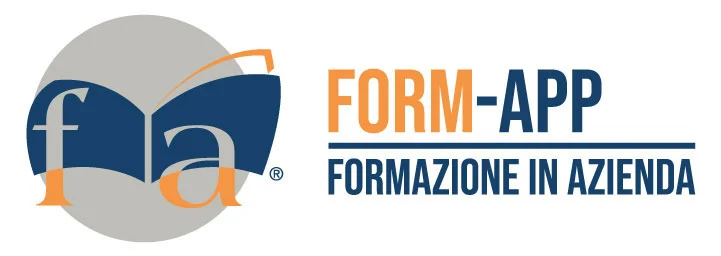Richiedi informazioni sul corso
English Fitness – Every Day Life
LNG19
Descrizione
Il corso Grammatica Inglese è costituito da 30 units, ognuna sviluppata su situazioni specifiche della vita di tutti i giorni.
Obiettivi
L’allenamento della lingua inglese attraverso un ripasso delle strutture grammaticali e l’utilizzo della lingua Inglese in situazioni concrete di vita quotidiana
Programma
- Unit 1 A friend arrives. “To be”, “have got”, regular verbs (affirmative), short answers (“to be”, “have got”), question words (“to be”, “have got”)
- Unit 2 Breakfast time. Object pronouns, possessive adjectives, frequency adverbs, verbs: 3rd person singular spelling changes
- Unit 3 Real English food. Present simple, question words, short answers with “do”, “some” / “any” (introduction)
- Unit 4 A testing situation. Adjectives and adverbs of quantity, “can”
- Unit 5 The romance advisor. Countable / uncountable, “some” / “any”, quantifiers: “much”, “many”, “little”, “a little”, “few”, “a few”, expressing desires and preferences: “would like”
- Unit 6 A room of her own. Present continuous, building the -ing form, uses of the present continuous, spelling changes of verbs with –ing, present continuous vs present simple
- Unit 7 Who’s doing the chores? “to have”, “have got”, special expressions with “to have”, “have to” for obligation
- Unit 8 The big make-over. Imperative, giving directions, giving instructions, instructions with impersonal “you”
- Unit 9 Here comes David. Past simple: “to be”, time expressions with the past simple (on, in, last, when, ago, yesterday)
- Unit 10 In good hands. Past simple of regular and irregular verbs, spelling variations in past regular verbs
- Unit 11 Mad about him. Possessive pronouns, Saxon genitive, “what” /”which”
- Unit 12 A father-daughter chat. Adjectives, “seem” / “look” + adjective, “should”
- Unit 13 A not-so-typical man. The comparative form
- Unit 14 A fancy dress. Superlative: forms and exceptions
- Unit 15 Too tired to do anything! Future with “will” and “shall”, the future with “going to”, difference between “will” and “going to”
- Unit 16 Love sickness. Question tags with “to be”, with present simple, asking about the subject and asking about the object, verbs with two objects
- Unit 17 Just friends? Auxiliaries “be”, “have” and “do” and other ways to avoid repetition (“I think so / I don’t think so”,” I hope so / I hope not”), emphatic “do”,
- Unit 18 Waiting for Lucy. Talking on the phone, “hope” / “expect” / “wait for” / “look forward to”, question words + prepositions at the end
- Unit 19 Not a traitor. Modal verbs expressing ability, permission, possibility, certainty, advice, responsibility and obligation, “to be good at” / “to be bad at”
- Unit 20 A dream travel. Review of the future tenses, prepositions of place and movement
- Unit 21 The Tuscan sun. Different uses of “like” (“to like”, “would like”, “to look like”, “to be like” and “what is he like?” vs “how is he?”)
- Unit 22 A welcome guest. Past continuous, “let / make someone do something”, “so” and “such” (“so that”, “such that”)
- Unit 23 This is such a treat! Review of modal verbs that express probability, possibility and certainty, “can” and “be able to”, “to be supposed to do something”
- Unit 24 Neighbour or boyfriend? Habitual activities in the past (“used to” vs “to be used to + ing”), “going to” in the past, revision of question tags
- Unit 25 Out of tune. Review of comparative and superlative forms, comparing adverbs, nouns and verbs
- Unit 26 The winner takes it all. The present perfect + for / since, use of the present perfect
- Unit 27 Present perfect vs past simple, relative pronouns (also defining and non-defining relative clauses)
- Unit 28 Heading to Australia. Verb + infinitive / verb + -ing, zero conditional, first conditional, time clauses with present simple (“when” / “if” /”as soon as”, “unless”)
- Unit 29 Looking for a new job. Present perfect continuous, expressing duration with the present perfect and the present perfect continuous
- Unit 30 Greetings and departures. Phrasal verbs (classification, separable / non-separable), second conditional
Destinatari
Il corso Grammatica Inglese si rivolge ad utenti che desiderano fare un ripasso generale delle strutture grammaticali.
*si potrà usufruire dei corsi in modalità FAD per un periodo massimo di 3 mesi dalla data di acquisto.
| Iscritti | Sconto | Prezzo Scontato |
| 0 - 1 | - | - |
| 2 - 3 | 10% | - |
| 4 + | 15% | - |
I corsi in aula e in videoconferenza partiranno solo al raggiungimento del numero minimo di partecipanti .
Il corso Grammatica Inglese è costituito da 30 units, ognuna sviluppata su situazioni specifiche della vita di tutti i giorni.
Scarica la Scheda del Corso
Note
Con La Risorsa Umana il corso è gratuito per le aziende iscritte ai Fondi Interprofessionali.















